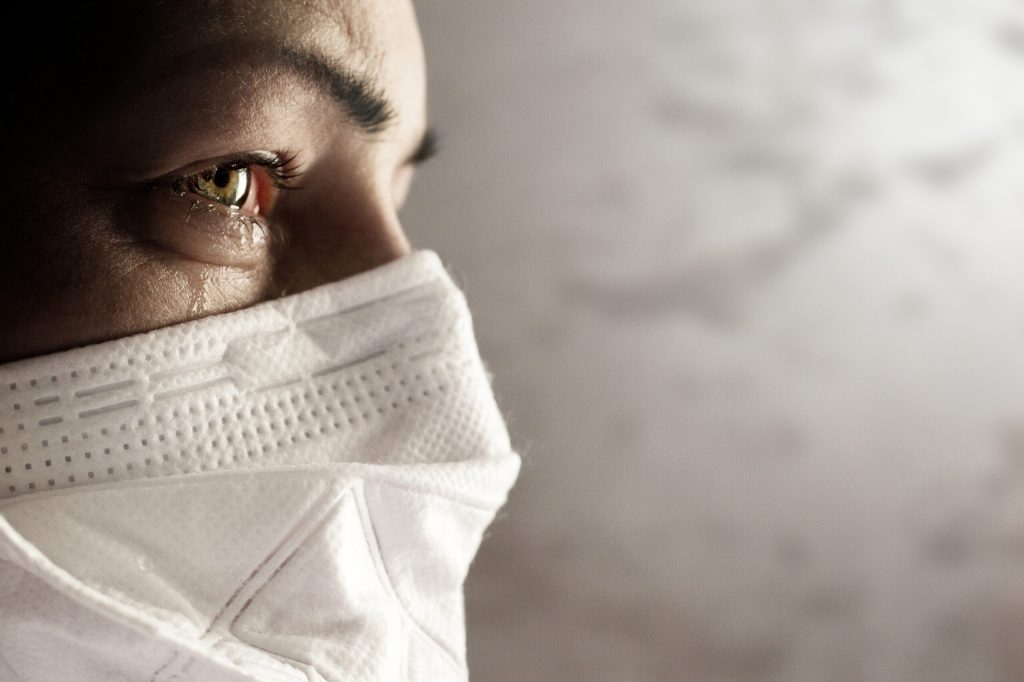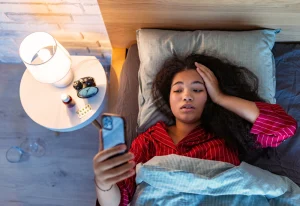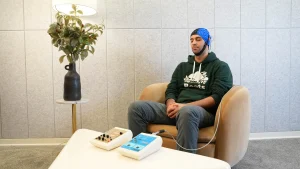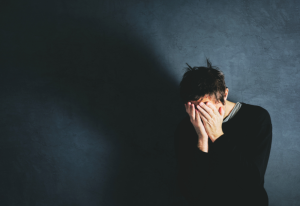“His palms are sweaty, knees weak, arms are heavy… he’s nervous, but on the surface, he looks calm and ready.” We do not need to go further into the lyrics, but can you relate? Anxiety arises in our lives in several ways, but what do you do if it persists and manifests itself into the many domains in your life?
With our current global conditions, as COVID-19 is still prevailing and numbers are beginning to rise, stress and anxiety amongst the population will too.
So, what do you do?
We all experience the common daily stressors in our life – worrying about upcoming presentations, meeting deadlines for work or school, or even managing a kid’s busy schedule.
With what seems like a never-ending global pandemic, how do we cope?
How Common Are Stress And Anxiety?
Everyone experiences stress and anxiety daily to some extent. A study conducted in 2013 found that roughly 3 million Canadians aged 18 and up claimed that their anxiety affected them in their everyday life.
The typical question moving forward would be, what are the stressors in our lives that are activating our anxiety AND… how can we take control over them to promote a steady, mindful state?
But now we also have to take into account those added by the invisible threat, the novel coronavirus.
Let’s Start With Generalized Anxiety Disorder
Generalized Anxiety Disorder is a global mental health issue that affects over 110 million people of all ages. It’s a chronic disorder that arises in people who experience excessive and ongoing anxiety and worry.
According to the DSM-5, lifetime prevalence rests at an average of 5%, and rates rising to almost 10% for women aged 40 and higher.
So if you find yourself constantly worrying over several things in your life such as money, your job, meeting deadlines, your relationships, and household responsibilities, and have difficulty controlling this constant state of worry — and this has all lasted over six months, you may have undiagnosed Generalized Anxiety Disorder.
Recognize it, but don’t make it a part of your life. It’s time to take care of your emotions!
But, did you know our children are also at risk of developing Generalized Anxiety Disorder too?
How To Tell If Your Child Has GAD
If you have a young child or have a young child in your family – it’s important to note that a certain amount of anxiety is normal as a part of their healthy development. Loud noises, separation anxiety, fears of the dark, and even strangers are all common, so there you have nothing to worry about! It’s all about them growing up.
However, if you start to notice that they begin to experience more frequented anxiety as they age – around multiple faucets in their life such as school, friends, family, and sports teams – then we do recommend seeking a therapy plan for them; They shouldn’t be experiencing such stress at a young age!
Especially with the pandemic regulations and social distancing guidelines as outlined by our Provincial Health Officers, play dates with friends were prohibited to decrease the spread. Without regular interaction and play – anxiety and anger form.
Children accumulate stress and aggression – it’s a normal phenomenon – and the way that it’s released is through playtime. It’s brought out from the inside out and helps them to rationalize their feelings.
With today’s society, even without the pandemic, they are often over-stimulated which leads us to see an increase in stress, anxiety, and aggression in them. And now, due to a decrease in play with their peers, there is a decline in the way that all their emotions are managed.
Pandemic Anxiety
Kids Help Phone stated that 8 in 10 children were nervous and anxious about returning to school back in September. They also stated that roughly one in three children who contacted them were nervous about contracting and spreading the disease. Others were concerned about their mental health in regard to being alone in isolation and living in fear of the invisible threat.
In adults, we have seen their stress and anxiety portrayed in a variety of means.
Drinking, smoking, and substance abuse increased in North America once the pandemic came and took a hit.
Adults needed to find new ways to cope; From losing their jobs, reduced outside errand time, not being able to see loved ones, as well as all the coupled up stress and anxiety from their drastically changed daily routine, we all needed to find ways to utilize our time.
While some gravitated towards board games and puzzles, which consistently sold out online, others gravitated towards other means, which contributed to the delay of dealing with and managing their emotions.
For example, in comparison to 2018, liquor sales in British Columbia increased 21.5% from $ 498 million to $ 605 million in a span of months.
Others took to creating a calm, safe environment in their homes where they, for example, began a new fitness routine and leveled up some skills.
Understand Your Anxiety
Generalized anxiety disorder is common. It’s normal for people to experience typical daily life stressors, but if not treated, it can have long-lasting harmful effects, such as:
- Sleep issues
- Autoimmune problems
- Heart palpitations
- Increased blood pressure
- IBS
along with many more. Coupled with pandemic stress, it’s important to develop a plan to reduce your stress and anxiety, and seek treatment so you can be the best you can be.
Ways to Reduce Pandemic-Induced Anxiety
There are many techniques and therapies that you can have easy access to that are proven to be effective treatments for Anxiety.
Neurofeedback treats your cognitive worrying and emotional irritability. Biofeedback reduces the physiological hyperarousal symptoms associated with generalized anxiety.
In addition to that, there are some easy tasks you can do regularly such as monitoring your news update schedule, limiting your time on social media if you recognize that to be a trigger for stress, and perhaps trying to limit your alcohol consumption – they had plenty of sales back in April!
Also, something we highly recommend is shifting your focus and attention. Practice your awareness of self and surroundings through meditation. Implement a new workout routine and focus on that. Where your focus goes, energy flows. And with what comes with exercise are all those happy neurotransmitters, like serotonin and dopamine.
Through workouts and meditation, you can calm down your hyper-aroused state and begin your decompression.
Other treatments we recommend if you or someone you know is dealing with increased anxiety is Cognitive Behavioral Therapy, Clinical Hypnosis, Functional Medicine, as well as Nutrition Counselling.
If you need support, we at Elumind are here to help. Living in an anxious state is not a comfortable one for either you or someone you love. If you would like to schedule an appointment with our client care coordinator, she would be more than happy to talk with you.
Elumind Centres for Brain Excellence is an integrated mental health centre offering solutions that can help you with your mental/brain health needs. To start your journey, book your FREE 15-MINUTE PHONE CONSULTATION. We are here for you.








